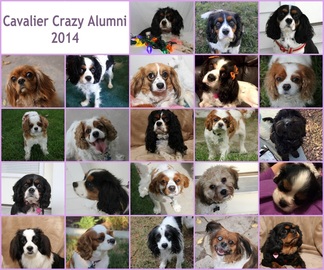|
What is a 501(c)3 charity? 501(c)(3) exemptions apply to corporations, and any community chest, fund, cooperating association or foundation, organized and operated exclusively for religious, charitable,scientific, testing for public safety, literary, or educational purposes, to foster national or international amateur sports competition, or for the prevention of cruelty to children or animals.There are also supporting organizations—often referred to in shorthand form as "Friends of" organizations. Another provision, 26 U.S.C. § 170, provides a deduction, for federal income tax purposes, for some donors who make charitable contributions to most types of 501(c)(3) organizations, among others. Regulations specify which such deductions must be verifiable to be allowed (e.g., receipts for donations over $250). Due to the tax deductions associated with donations, loss of 501(c)(3) status can be highly challenging to a charity's continued operation, as many foundations and corporate matching programs do not grant funds to a charity without such status, and individual donors often do not donate to such a charity due to the unavailability of the deduction. The two exempt classifications of 501(c)(3) organizations are as follows:
Source: Wikipedia One of the questions I get asked the most is “Is Cavalier Crazy Rescue a 501(c)3 non-profit charity?”
The answer is no, at least not yet. The reason why we have not gone that route yet is because when CCR started up with our first rescue in 2010 we were just a small rescue. For the first 2 years we only had a small handful of dogs come in. We paid for everything out of pocket and were reimbursed by the adopter as their adoption fee. Starting in 2013 the rescue started getting bigger and we had more and more dogs come in, and last year, 2014, was our biggest year to date, and we had a several medical cases come in. As stated above, you need to have public support, from a variety of donors. So far most of our donations have come from a handful of people. What does this mean to you, as an adopter? Not much. Contrary to a common belief, you cannot write off your adoption fee for a dog, even if it’s paid to a 501(c)3 charity. Because you are receiving “goods” (ie, the dog), it is not a donation. What does it mean to you as a donor? We cannot provide you with a receipt to write off your donation on your taxes at this point. We do very little fundraising and try to raise most of our money through purchases of our yearly calendar and other goods such as notecards and prints. 100% of the profits made from these items go to helping the CCR dogs. As it stands, we pay taxes on every penny we “make”, be it from donations or from our calendar sales. Like most rescues, we lose money on our senior dogs and our dogs with medical issues. At CCR we do not like to charge high adoption fees for our sweet senior dogs, but we want them to get all of the vet care needed. From spaying/neutering to dentals to ear cleanings to treating them for heart conditions, we want ALL of our dogs to have the best medical care possible and be in tip top shape before going off to their forever homes. We take in seniors, medical cases, puppy mill rescues, shelter dogs and owner releases. We take in cavalier mixes as well, not just purebreds. As I talked about in my previous blog post, we try to make up those losses by asking a higher adoption fee for our young, healthy dogs. Be assured, though we are not a non-profit charity, we are not for profit. Your adoption fee, your calendar purchases, all of that money goes to help the dogs. I do not get paid a penny to do what I do. Transports, home checks, interviews, all of that is done by my because I care deeply for the welfare of these dogs. Likewise my wonderful helpers and fosters do what they do because they love these dogs. All of our dogs are fully vetted; spaying/neutering, shots, microchips, grooming and dentals are all included in your adoption fee, along with any other medical treatments the dogs need. All of our dogs go home with a brand new leash and collar and a goody bag of treats and toys. We are currently looking into options and weighing the pros and cons. Starting up a non-profit is not only time consuming, it is expensive. And funds we would use for that are funds we are currently using to help dogs in need. I am looking into whether we qualify, based on the size of the rescue, and if not what we need to do. As with everything, it is up to you as an adopter/foster/supporter, to educate yourself decide where you stand on all of this. If you want to donate to help cavaliers in need and want a receipt for tax purposes there are many 501(c)3 cavalier rescues you can donate to including, Treasured Pals Small Spaniel Rescue, Cavalier Rescue USA, Lucky Star Cavalier Rescue and Cavalier Rescue Florida among others. If you would like to help support Cavalier Crazy Rescue and cavaliers in Utah, you can buy a calendar or notecards! Click on the link for Calendars and More or visit our Etsy Shop: https://www.etsy.com/shop/CavalierCrazyRescue If you want to donate to CCR, we do have a PayPal account. You can email or message me. As always, thank you for your support!
1 Comment
Regin
2/7/2015 01:04:05 pm
Great information. Thank you!
Reply
Leave a Reply. |
Archives
September 2015
Categories |
| ccr_combined_app.docx | |
| File Size: | 26 kb |
| File Type: | docx |
